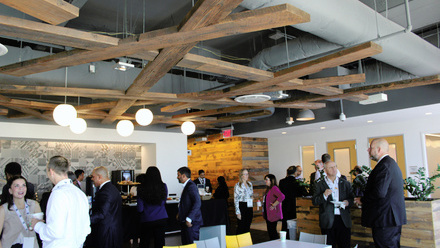Location: Strathclyde University, Teaching and Learning building - Room TL 4.55, 49, Richmond Street, Glasgow, G1 1XU or online teams call.
Timings: In person 18:00 for Presentation start at 18:30
Booking:
Marine structures are subjected to harsh marine environment which can cause various damage types including fatigue and corrosion. Prediction of fracture and failure is a challenging research area. There are various methods available for this purpose including well-known finite element (FE) method.
FE method is a powerful technique for deformation and stress analysis of structures. However, it has various disadvantages in predicting failure due to its mathematical structure. To overcome this problem, a new computational technique peridynamics was introduced. Peridynamics is a meshless method and it is very suitable for predicting crack initiation and propagation in structures subjected to different types of loading and environmental conditions. Peridynamics is also suitable for multiphysics analysis so that influence of different physical fields on each other can be accurately represented with damage prediction capability.
In this seminar, various applications of peridynamics for marine structures will be demonstrated including stress corrosion cracking, pit-to-crack transition, underwater shock response of composite structures, fatigue damage prediction in metals, ice-structure interactions and fracture in marine lithium-ion batteries.




